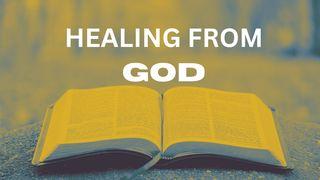We Believe In Jesus: The ChristSample

Lord’s Supper: Luke 22:17-20
As we’ve mentioned, Jesus’ passion and death took place during the Passover week. So, one of the things that Jesus did during this week was eat the Passover meal with his disciples. He did this immediately before his arrest and crucifixion, and the event is commonly known as the Last Supper. During this Last Supper, Jesus did something very special that Christians have been commemorating ever since: he instituted the Lord’s Supper as a Christian sacrament or ordinance.
As we’ve said, the Last Supper was a Passover meal. It commemorated the fact that God had rescued the nation of Israel from slavery in Egypt. But at the end of this meal, Jesus used the symbolism of Passover to draw attention to his own work as the Christ. Specifically, he selected two items from the dinner — the unleavened bread and a cup of wine — and assigned new meaning to them. According to Luke 22:17-20, Jesus associated the bread with his body, which he was about to present to God as an offering for sin. And he associated the cup of wine with his blood, which would also be part of that same offering for sin. Moreover, when we combine his teachings in Matthew 26:29 and Mark 14:25 with his instructions in Luke 22:19, we see that Jesus taught his disciples to use these elements on a perpetual basis as a memorial to him, until he returns and finishes the work he began.
The Lord’s Supper in Christian tradition has often been described as the visible words of Christ because they give a visual demonstration of what happened on the cross. So broken bread, wine poured out, point us to Christ whose body, nailed to the cross, his blood shed for us, and the way in which the symbolism works, or the sacrament works, is to point us back to Christ, to enable us to partake of the benefits of his death by eating and drinking in memory of all that he did for us. And there is a sense in which believers also feel that there’s a great spiritual strengthening that happens when we eat and drink, we participate in the benefits of all that Christ has done for us at that point. — Dr. Simon Vibert
Scripture
About this Plan

This reading plan investigates the doctrine of Christology, focusing on the person and work of Jesus Christ. Jesus is God in the flesh, the center of all history, and the only hope for the salvation of humanity and creation. This plan explores the life and ministry of Jesus Christ.
More
Related plans

He Is My Provision

The Thread for Survivors: A 5-Day Devotional Journal of Healing, Finding Your Voice and Sacred Becoming

Financial Discipleship – the Bible on Bribes

Road to Pentecost: Five Days of Spiritual Renewal

Spiritual Training: The Discipline of Fasting and Solitude

Purpose, People, & Prevention: Thriving in Public Health With God

The Kingdom Manifesto

Jesus + Nothing

The Dove
